Negotiate
Successfully
How to get your way and find
win-win solutions
A & C Black London
Revised edition first published in Great Britain 2009
A & C Black Publishers Ltd
36 Soho Square, London W1D 3QY
www.acblack.com
Copyright A & C Black Publishers Ltd, 2009
First edition 2004 Bloomsbury Publishing, 2004
All rights reserved; no part of this publication may be reproduced, stored in a retrieval system, or transmitted by any means, electronic, mechanical, photocopying or otherwise, without the prior written permission of the Publisher.
No responsibility for loss caused to any individual or organisation acting or refraining from action as a result of the material in this publication can be accepted by A & C Black Publishers Ltd or the author.
A CIP record for this book is available from the British Library.
eISBN: 978-1-40813-410-8
This book is produced using paper that is made from wood grown in managed, sustainable forests. It is natural, renewable and recyclable. The logging and manufacturing processes conform to the environmental regulations of the country of origin.
Design by Fiona Pike, Pike Design, Winchester
Typeset by RefineCatch Ltd, Bungay, Suffolk
Printed in Spain by GraphyCems
Contents

Answer the questions and work out your score. Then read the guidance points on p. vi to find outhow you can improve your negotiation skills.

How good a listener are you?
a) Poor b) Average c) Very good
Which word do you most associate with negotiation?
a) Concession b) Co-operation c) Success
Do you find negotiations exciting?
a) Only if they are short.
b) If I have prepared for them.
c) Yesas long as I get what I want.
How would you describe your approach to negotiation?
a) Defeatist b) Prepared c) Competitive
Is there always a winner and a loser?
a) YesIm usually the loser.
b) Not necessarilyboth parties can win if theyre willing to compromise.
c) YesIm usually the winner. I rarely give in.
How much time do you spend preparing?
a) Its usually last-minute preparation as Im too busy.
b) As much as possible. I prioritise my objectives and try to anticipate different reactions and outcomes.
c) I know what is needed to winthats enough.
To what extent do you use active listening skills?
a) Not much
b) As much as possible
c) Active what?
How would you describe your body language whilenegotiating?
a) Submissive b) Communicative c) Aggressive
What do you consider your role to be in negotiations?
a) Supporter b) Information provider c) Front line
How do you react when negotiations get heated?
a) I tend to panic and give in easily.
b) I usually suggest taking a break in order to let people calm down and gain some perspective.
c) I battle on and try to break down the opposition.
How do you approach your boss when its time for apay rise?
a) I wait for them to mention it. They know their budgets.
b) I explain how Ive progressed, and why I deserve a rise.
c) I demand a pay riseor else!
a = 1, b = 2, and c = Now add up your scores.
No matter how good you think you are at negotiation, you can always improveread chapter to find out how.
 1117: While aggression is normally best avoided, a little more may be good for you. Instead of looking for the fastest route to a conclusion, try a little bartering and see where it takes you. Pay attention to the non-verbal signals conveyed by yourself and others learn about these in chapter . Chapter offers advice for better planning, which will give you more confidence in your side of the negotiation. If you struggle with pay rise negotiations, chapter should help.
1117: While aggression is normally best avoided, a little more may be good for you. Instead of looking for the fastest route to a conclusion, try a little bartering and see where it takes you. Pay attention to the non-verbal signals conveyed by yourself and others learn about these in chapter . Chapter offers advice for better planning, which will give you more confidence in your side of the negotiation. If you struggle with pay rise negotiations, chapter should help.
 1826: Although thorough preparation is your forte, be alert to the dangers of becoming complacent when you have finished preparingan unexpected response may well be the downfall of an otherwise successful negotiation. Chapter advises you on how to act in difficult negotiations, and expand your skills by reading chapter , which deals with negotiating over e-mail.
1826: Although thorough preparation is your forte, be alert to the dangers of becoming complacent when you have finished preparingan unexpected response may well be the downfall of an otherwise successful negotiation. Chapter advises you on how to act in difficult negotiations, and expand your skills by reading chapter , which deals with negotiating over e-mail.
 2733: As a competitive person, you should try bringing a more balanced attitude to the negotiating table, and the other party will feel goodwill towards you for your ability to compromise. Remember to listen, and watch for physical signs of the other partys moodread chapter to find out how. Chapter will help if you have difficulties in negotiations with other cultures.
2733: As a competitive person, you should try bringing a more balanced attitude to the negotiating table, and the other party will feel goodwill towards you for your ability to compromise. Remember to listen, and watch for physical signs of the other partys moodread chapter to find out how. Chapter will help if you have difficulties in negotiations with other cultures.

We all negotiate a lot more than we think we do,in every area of our life, and developingnegotiation skills is an essential part of movingup the career ladder.
Negotiation is the process of trying to find anagreement between two or more parties withdiffering views on, and expectations of, a certainissue. Some people dread negotiating becausethey associate it with conflict, bad feelings, andhaving to make sacrifices. However, goodnegotiations find a balance between each partysobjectives to create a win-win outcome.

Step one: Understand the different types of negotiation
The negotiation process works by means of discussions, compromise, and trading. It goes without saying that negotiations can take different forms, depending greatly on the people involvedtheir skills, attitudes, and style. Other factors influencing the character of a negotiation are the context or background to the negotiation, time pressures, and the issue under discussion. Negotiations tend to be competitive or co-operative, though.
1 Competitive negotiations
Competitive negotiations often have an unfriendly atmosphere and each party is clearly out to get the very best deal for themselvesthe other partys objectives tend not to come into the equation. Its best to avoid this type of negotiation if possible, but if you find yourself in this situation, bear the following in mind.
 If you can, avoid making the opening bid as it gives a great deal of information to the other party. Try not to tell the other party too much and aim to keep control of the meetings agenda.
If you can, avoid making the opening bid as it gives a great deal of information to the other party. Try not to tell the other party too much and aim to keep control of the meetings agenda.
 Conceding in a competitive situation is seen as a sign of weakness, so do this as little as possible. The size of the first concession gives the opposing party an idea of the next best alternative, and tells them exactly how far they push you.
Conceding in a competitive situation is seen as a sign of weakness, so do this as little as possible. The size of the first concession gives the opposing party an idea of the next best alternative, and tells them exactly how far they push you.

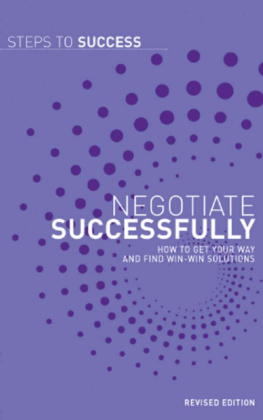


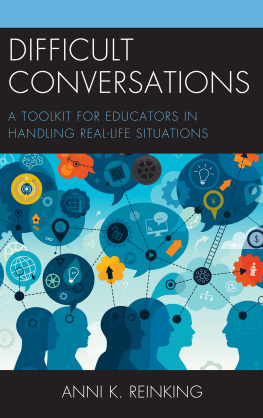

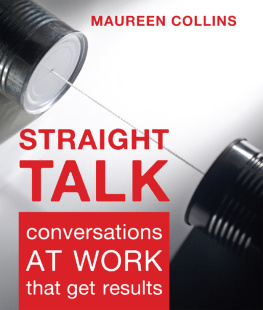
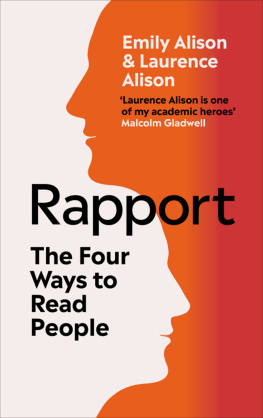
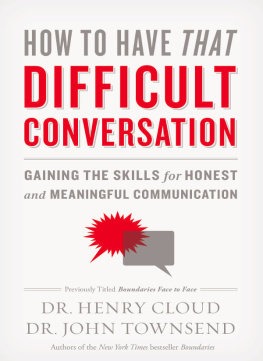
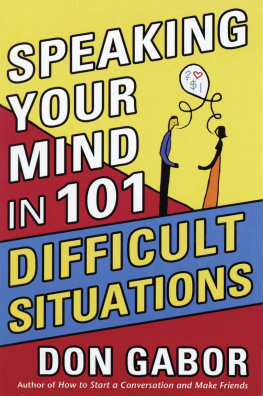
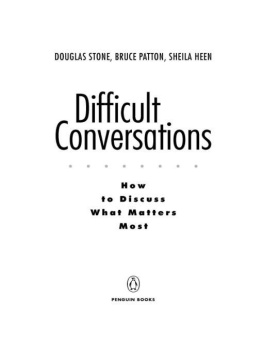
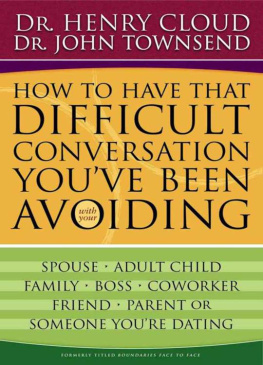


 1117: While aggression is normally best avoided, a little more may be good for you. Instead of looking for the fastest route to a conclusion, try a little bartering and see where it takes you. Pay attention to the non-verbal signals conveyed by yourself and others learn about these in chapter . Chapter offers advice for better planning, which will give you more confidence in your side of the negotiation. If you struggle with pay rise negotiations, chapter should help.
1117: While aggression is normally best avoided, a little more may be good for you. Instead of looking for the fastest route to a conclusion, try a little bartering and see where it takes you. Pay attention to the non-verbal signals conveyed by yourself and others learn about these in chapter . Chapter offers advice for better planning, which will give you more confidence in your side of the negotiation. If you struggle with pay rise negotiations, chapter should help. If you can, avoid making the opening bid as it gives a great deal of information to the other party. Try not to tell the other party too much and aim to keep control of the meetings agenda.
If you can, avoid making the opening bid as it gives a great deal of information to the other party. Try not to tell the other party too much and aim to keep control of the meetings agenda. Conceding in a competitive situation is seen as a sign of weakness, so do this as little as possible. The size of the first concession gives the opposing party an idea of the next best alternative, and tells them exactly how far they push you.
Conceding in a competitive situation is seen as a sign of weakness, so do this as little as possible. The size of the first concession gives the opposing party an idea of the next best alternative, and tells them exactly how far they push you.